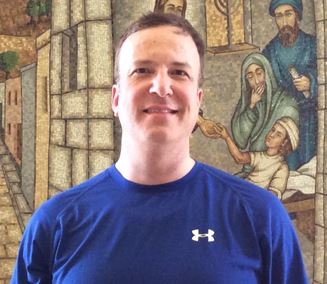Reflecting on the past week, it has been heart wrenching to read about both the short and long-term effects of Hurricane Harvey. Some 450,000 people are now in need of disaster assistance including some 30,000 people who are displaced and seeking shelter.
It has been overwhelming to see the many horrific news clips of roads turned into rivers, nursing home residents in waist deep water, and hundreds of families trapped in their apartments and on roofs. Numerous homes in these communities are now without power and up to 250,000 people have been reported without power throughout Texas, with the number expected to keep rising.
I have also watched some of the most inspiring stories of heroic emergency crews and volunteers rescuing hundreds of residents from their flooded homes. The Coast Guard said it has rescued more than 3,000 by boat and air and was taking more than 1,000 calls per hour.
Hundreds of volunteers have come together with flat-bottom hunting boats to pull strangers out of the water. Watching these critical moments of life and death brings moments of deep reflection about what is most important in our lives. One of the volunteers said, “I couldn’t sit at home and watch it on TV and do nothing since I have a boat and all the tools to help.”
Places of worship including mosques, synagogues, and churches have also opened their doors to flood victims. People from across the affected regions have been checking in on the sick and elderly in their neighborhoods, sharing food, water, information, and supporting each other. Though natural disasters can always bring out the worst in people, it can also be a time of coming together, putting aside our differences, and being kind and generous. There are many amazing reports of altruism, cooperation, and camaraderie among those affected by the flooding. People of all races, socioeconomic status, and religions can and do work together for the common good.
Author Rebecca Solnit wrote in her book, A Paradise Built in Hell, that “The great majority of people are calm, resourceful, altruistic or even beyond altruistic, as they risk themselves for others. We improvise the conditions of survival beautifully.”
Rebecca writes how, “I feel often that we don’t have the right language to talk about emotions in disasters. Everyone is on edge, of course, but it also pulls people away from a lot of trivial anxieties and past and future concerns and gratuitous preoccupations that we have, and refocuses us in a very intense way… In some ways, people behave better than in ordinary life and in some disasters people find [out about] the meaningful role of deep social connections and see their absence in everyday life.”
Rebecca believes that we are wired for these connections with one another and to act in generous ways. Our brains are designed so that our stress systems can be soothed by one another in times of crisis. We respond to calming words and the gentle touch of a loved one. This may be in part to the bonding hormone oxytocin which tends to lower levels of our stress hormones. Rebecca believes that we have learned this from conditioning in our infancy through our parents and caregivers. As we developed, our stress systems became intricately linked to the presence of others that provided us with comfort and relief from our stresses and anxiety. Hundreds of studies now show that strong social support extends life and improves health in multiple ways, acting primarily through its effects on the stress system.
During disasters such as Hurricane Harvey, we are learning that our social supports can largely determine our survival. The more connections we have and the stronger our bonds are with one another, the more likely we are to survive, not only just physically, but emotionally and spiritually as well. Research has shown that to prevent and treat post-traumatic stress disorder, our supports are the best medicine. Though no one wants to face catastrophe, when we do, it has the potential to bring out our unexpected gifts — but only if we share and value one another.
 Rebecca believes that “It’s when we face the toughest times that our true nature reveals itself.” As a Holy Family Community of faith, we believe that “We are in this together.” Research now supports this belief as well.
Rebecca believes that “It’s when we face the toughest times that our true nature reveals itself.” As a Holy Family Community of faith, we believe that “We are in this together.” Research now supports this belief as well.
Holy Family, let us continue to pray in solidarity with the people of the Galveston-Houston area, as they cope with the damaging effects of Hurricane Harvey. We pray for the emergency personnel and volunteers who are out and about in dangerous conditions, that they may be safe from harm’s way. Let us all be generous in our love and support of one another. May God be the source of our strength, hope and peace in Jesus’ name. Amen.”
Fr. Rich Jakubik, LCSW, Psy.D.